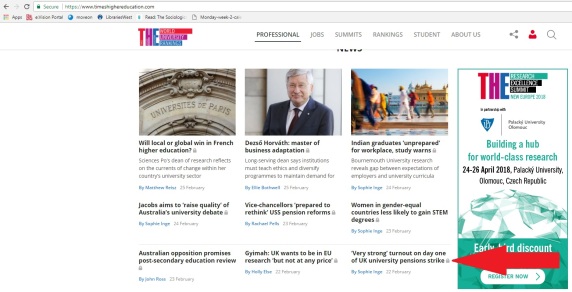In his latest blog post Salford VC Martin Hall has exceeded his already prodigious weekly word count (just where does he find the time?) by detailing the reasons why languages are to be “phased out”. This has now replaced “disestablished” in his managerial vocabulary. Progress of a sort, I suppose.
But there is something rather suspicious about Martin’s account and the timeline he draws.
His post focusses on the economic unviability of languages degrees in the new financial climate. From this account it looks as if Salford has been the victim of unfortunate circumstances that it has only just learned about. “Not our fault, gov, national policy don’t you know?” is his defence.
However, the concentration on present and projected undergraduate numbers means Martin neglects to mention a number of things that the reader should know.
Firstly, Salford had until very recently thriving MA courses in Translation and Interpreting and Teaching of English as a Foreign Language that attracted over 100 students a year, more than a third of them from overseas. It also had more than half of the total PhD students in the entire School of HuLSS. And many of these were paying overseas fees.
Secondly, the downsizing strategy pursued under Huw Morris and Adrian Graves began a long time back and has caused irreparable damage to the university’s image. I have remarked on this before, but here are a couple of quotes from potential applicants discussing whether to accept a place at Salford on The Student Room during this summer:
I don’t want to be at a Uni that’s running down its courses and which will probably be in more trouble soon.
I’m not going to be on board the Titanic when it sinks.
Is it just me that’s worried about Salford University’s worsening financial situation, they’re planning like the 12th round of staff cuts in over one and a half years and are planning on discontinuing some courses in several departments.
So we arrive at September 2013 and, after three years of negative publicity and public climb-downs in a desperate attempt to save face: surprise, surprise, not many students are attracted to the courses still running. I’ll leave you to decide whether this is just down to being in the “squeezed middle” or has more to do with the lack of support and at times outright wilful under-investment from senior management over a longer time.
Martin, after all, has to find a way to fund the crushing rents due to Peel Holdings at Media City and to meet the university’s loan repayments for more new buildings.
Another striking aspect of the prolific Vice-Chancellor’s blog post is his choice of comparators. He mentions Bradford as another university that closed its languages provision. This is interesting, and at least relevant, in that Bradford and Salford have similar origins and had applied languages courses that were comparable. But he neglects to mention that Bradford’s demise lies more than half a decade back and had more to do with management decisions and the fallout from the Bradford riots in 2001.
He explicitly does NOT mention Aston, Heriot-Watt or Bath. All three are universities of the same plate-glass generation as Salford. All three still have well-regarded language programmes of a similar flavour.
What he does cite is the University Alliance Group’s policy proposal for Targeted Support for Modern Foreign Languages* . Barely any of the Alliance Group members mentioned (with the exception of Bradford) had a substantial degree-level language programme before 1992. Only a few of them built up departments to rival Salford in scale and scope over the boom years of the late 1990s. None of them had substantial research interests or postgraduate students in Translation and Interpreting Studies. Most of the programmes cited on page 16 of the document are degrees in which language is very clearly a minor component. At least one Alliance Group member had already abolished its language degrees some time back (UWE).
I would put it this way. Salford University, as a result of poor decisions, extravagant spending on glory projects and lack of a coherent strategy, has fallen ever lower on the various league tables to the point where its overall profile is closer to that of the post-1992 universities than of Aston, Bath or Warwick.
Hence the decision to join the Alliance Group. The Alliance Group is not interested in offering degrees in modern languages. Most of its members would like the window-dressing of a university-wide language programme to avoid the accusation that their international strategy is just about maximising overseas student numbers. But the kind of language degree programmes that Salford runs do not fit this picture. This explains Martin’s hand-wringing. He’d really like to be thought of as a nicer, more liberal leader than he needs to be.
As a former staff member, who had to listen to the absurd mantra about Salford aiming to be “top quartile” by 2017 as a justification for wholesale butchery of established courses, it sticks in my throat.
* In a way the use of the secondary school acronym MFL (Modern Foreign Languages) tells us the authors of this document lacked the courage of their convictions.




.jpg)

